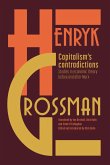`The book is well written and clearly structured, bringing together much dispersed material. The most interesting part of the book is the case study of the Czech engineering firm CKD. The case study gives an insight into the continuing processes of transition: transition is a process, rather than a jump from Socialism to capitalism. The author provides solid evidence on the ways in which adjusting to the market has proved painful, and in the end unsuccessful for CKD, which has been merged with another firm. Overall, Transformation at Work provides a valuable insight into the realities of the transition process at the enterprise level' - Employee Relations In this book, Anna Pollert questions the values hidden in the burgeoning literature on `transformation', and addresses the main concerns arising from these. In exploring the key issues of post-communist transformation, the author discusses important theoretical issues about the nature of change and continuity, such as historical, socio-economic and political effects of transformation, the broad problems of how workers and their organizations respond to change from command to capitalist economies, and case studies of how managers, workers and trade unionists experience these changes within their organizations. Transformation at Work explores the key issues of post-communist transformation in Eastern Europe. The author discusses important aspects of the nature of change and continuity including: historical, socio-economic and political effects; how workers and their organizations respond to change from command to capitalist economies; and how managers, workers and trade unionists experience change within their organizations.
Hinweis: Dieser Artikel kann nur an eine deutsche Lieferadresse ausgeliefert werden.
Hinweis: Dieser Artikel kann nur an eine deutsche Lieferadresse ausgeliefert werden.








